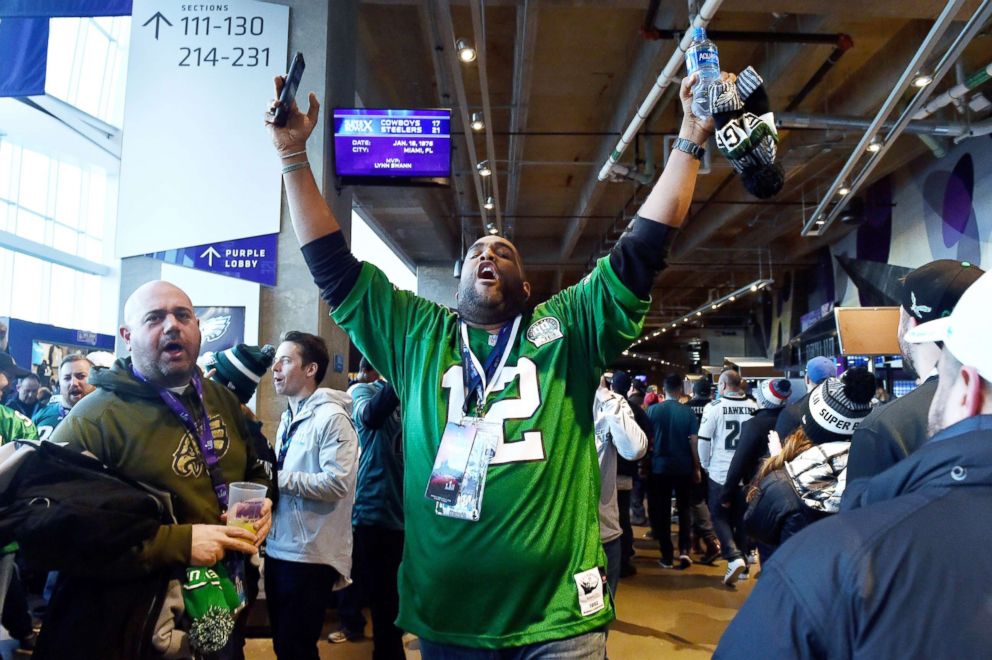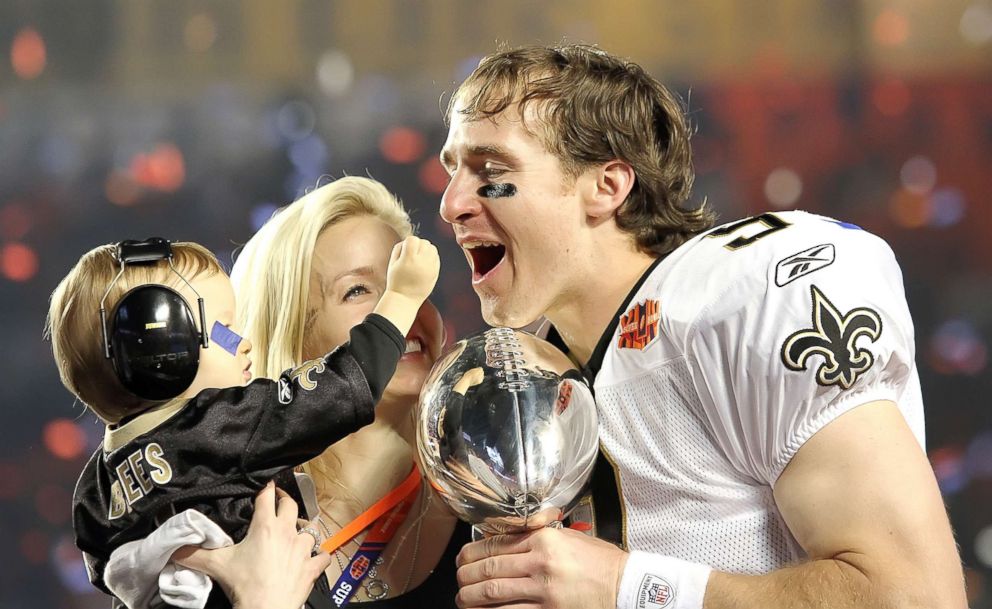You are vulnerable to hearing loss at any loud event — even bars and parties.
After winning Super Bowl XLIV in 2010, New Orleans Saints quarterback Drew Brees celebrated on the field with his 1-year-old son Baylen.
The young Brees was wearing a pint-size headset. It was more than just a fashion accessory — the football star was protecting his son’s hearing from the deafening noise of a 70,000-person stadium.
Fans at this Sunday’s Super Bowl in Atlanta would do well to follow his example.
ABC News spoke to two experts — Bernard Rousseau, Ph.D., chairman of the department of communication science and disorders at the University of Pittsburgh, and Catherine Palmer, Ph.D, director of audiology and hearing aids at UPMC — about ways to protect your voice and hearing at the Super Bowl and other loud events.
Exposure to high volume levels can damage hearing
Cheering, booing, air horns, music … there are many sources of noise at an event as large as the Super Bowl.
“Large sporting events, by nature, end up producing sounds that can injure your hearing. Everybody participating should be thinking about that,” said Palmer.
The type of stadium matters too.
“Super Bowls are usually in domed stadiums and that can help generate even more sound,” she added.
Palmer warns that even one loud event can cause damage.
“There are levels of noise that, over time, are going to produce gradual hearing loss,” she said. “You may not even notice for a couple of years … but there are also levels of noise, which are achieved at an event [like the Super Bowl], that can actually damage your hearing immediately. I think it’s important to understand that it’s permanent damage. A lot of people don’t realize that.”
At a stadium, people may not able to remove themselves from dangerous levels of noise. So earplugs are key, she said.

Loud noise exposure also causes more than just hearing loss.
“This kind of damage produces distortion in your hearing, sometimes ringing in your ears, and you can start to get a sensitivity to loud sounds. There are more things that go wrong than just the hearing loss,” Palmer noted.
And one is vulnerable to hearing loss at any loud event — including bars and parties.
“If you’re somewhere where they really have the music up loud, or the crowd is making lots of noise, wearing hearing protection in those situation makes good sense as well. Or move away from the noise,” she said.
Hearing aids, however, are not a fix-all solution to hearing loss.
“Although hearing aids help people tremendously, they do not fix the hearing loss,” Palmer said. “So you still have all that distortion in the system, which means even though hearing aids will help you, you’re still going to have trouble hearing in noise, even in regular noisy situations, like family parties or work situations. So there is no easy fix for this.”
She continued, “There are things called musician earplugs, which are nice because they reduce sound across all frequencies, so you can still hear accurately. But the key is to wear some kind of ear plugs.”
For little ones, an earmuff headset is the best solution.

Technology and earplugs to the rescue
Palmer suggests using a phone app to measure noise levels when at big events.
“The rule of thumb is that over 85-90 decibels (Db), we worry about you if you’re exposed for about eight hours,” she said. “But those are averages. Some people will have damage sooner and some people will be able to go longer without damage.”
She went on, “Once you’re above 110, we start to worry about more instant damage. Those are levels that are generally pretty uncomfortable. But if you’re involved in the game, or you’re having a drink, you may not notice those things as soon, so you really want to go prepared with hearing protection.”
Ask us how you can protect your hearing at Loud Events like the Superbowl!